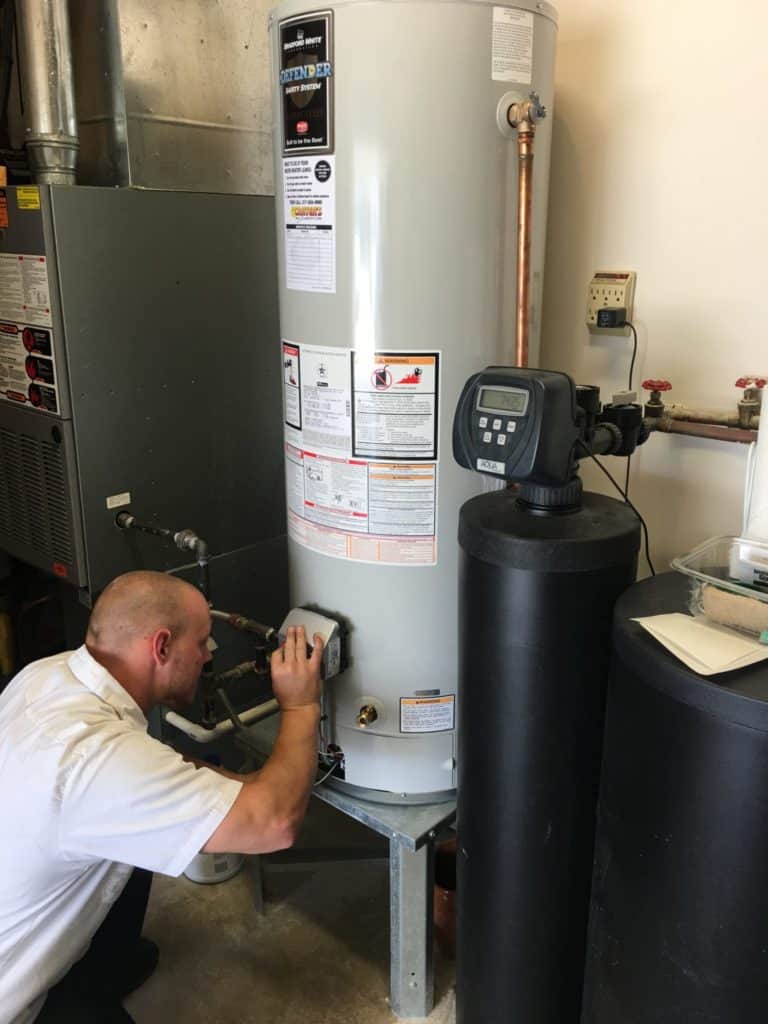Responding to the Frequently Arising Water Heater Urgent Problems
Responding to the Frequently Arising Water Heater Urgent Problems
Blog Article
Just how do you actually feel when it comes to Is Your Water Heater Leaking??

A hot water heater is just one of one of the most essential basic devices that can be located in a house. With water heaters, you do not need to go through the stress and anxiety of home heating water manually every time there is a demand to take a bath, wash, or the meals. There is always an opportunity that your water heater would act up as with a lot of mechanical gadgets.
It is very important to keep in mind any kind of little malfunction and also tackle it rapidly prior to points get out of hand. Most times, your hot water heater begins to malfunction when there is a build-up of debris as a result of constant usage. As a preventative measure, regular flushing of your hot water heater is recommended to stop sediment build-up and stop functional failure.
Usual water heater emergency situations and also how to take care of them
Dripping water heater storage tank.
A dripping container could be a sign of rust. It might create damages to the flooring, wall surface and electrical devices around it. You might also go to threat of having your home flooded. In this situation, you should switch off your hot water heater, allow it to cool, as well as very carefully look for the resource of the issue. Sometimes, all you require to do is to tighten a couple of screws or pipe links in cases of minor leakages. If this does not function and the leakage lingers, you might require to use the services of a service technician for an appropriate replacement.
Changing water temperature level.
Your water heater might start producing water of various temperature levels normally ice scalding or cool warm. In this situation, the first thing you do is to guarantee that the temperature is readied to the preferred level. If after doing this, the water temperature level maintains changing throughout showers or other activities, you may have a defective thermostat. There might be a requirement to replace either the heating or the thermostat device of your water heater.
Too little hot water
It might be that the water heating unit can't sustain the warm water demand for your apartment. You can upgrade your water heater to one with a bigger capacity.
Discolored or stinky water
When this happens, you need to know if the concern is from the storage tank or the water resource. If there is no amusing smell when you run cool water, after that you are certain that it is your water heating system that is damaged. The odiferous water can be triggered by rust or the build-up of bacteria or debris in the water heater container.
Conclusion
Some home owners disregard little caution and minor faults in their hot water heater unit. This only brings about further damages and also a possible total failure of your appliance. You must manage your water heater faults as quickly as they come near stay clear of even more costs and also unnecessary emergency difficulties.
With water heating systems, you don't need to go through the anxiety of heating water manually every time there is a need to take a bathroom, do the laundry, or the dishes. Your water heater can start producing water of various temperatures usually ice hot or cold warm. It may be that the water heating unit can't support the warm water demand for your home. If there is no funny odor when you run cool water, then you are particular that it is your water heater that is malfunctioning. The odiferous water can be caused by corrosion or the buildup of bacteria or sediments in the water heating unit container.
Common Water Heater Issues and What You Should Do
What Type of Water Heater Do You Have?
Before we begin it’s first important that you identify the type of water heater you have on your property. There are two main types of water heaters out there: conventional and high efficiency.
Both of these types of products typically use either gas or electricity to heat power. There are also solar water heaters that use a thermal collector on the roof or yard to heat the water.
While these models are not as common, they can cut heating costs in half. In this article, we will focus on conventional and high efficiency.
How Do My Electric and Gas Water Heater Work?
Though they look similar, electric and gas water heaters work very differently. It’s important to know their basic function because often problems can be specific to the heating source.
In the electric model, a thermostat on the side of the machine detects the temperature of the water in the tank. When the temperature needs to rise electricity flows to a heating element suspended in the water.
Gas models also use a thermostat device — typically with a mercury sensor at the tip and an additional sensor called a thermocouple. The thermocouple detects whether the pilot light is on and controls the flow of gas.
When the thermostat drops below the appropriate level gas is released which becomes ignited by the pilot light. The flame heats the bottom of the water tank which causes hot water to rise and cold water to drop.
This natural circulation continues until the water reaches the desired temperature. Then, the thermostat triggers the gas control valve to shut off the flow of gas.
What Are the Most Common Issues and How Do You Fix Them?
https://happyhiller.com/blog/common-water-heater-issues-and-what-you-should-do/

I'm just very intrigued by Warning Signs You Need Water Heater Repairs and I really hope you enjoyed my blog posting. Enjoyed our write-up? Please share it. Let other people discover it. Thanks so much for going through it.
Tailored care available. Report this page